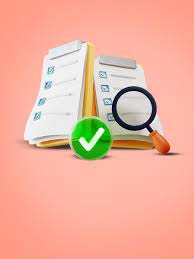
 Valuation Credentials
Valuation Credentials
Valuation credentials refer to the qualifications, certifications, or designations that individuals or firms possess to perform valuation services. These credentials demonstrate the expertise and knowledge of the professionals in the field of valuation and provide credibility to their work.
Here are some common valuation credentials:
1.Certified Valuation Analyst (CVA):
This credential is offered by the National Association of Certified Valuators and Analysts (NACVA). CVAs are trained in business valuation and have demonstrated proficiency in financial analysis, valuation techniques, and the application of valuation standards.
2.Accredited Senior Appraiser (ASA):
The ASA credential is granted by the American Society of Appraisers. It signifies expertise in a particular valuation specialization, such as business valuation, real property valuation, or machinery and technical specialties.
3.Chartered Financial Analyst (CFA):
While not specific to valuation, the CFA designation is highly regard in the finance industry. CFAs possess in-depth knowledge of investment analysis, financial markets, and asset valuation, which can be valuable in performing valuations.
4.Accredited in Business Valuation (ABV):
The ABV credential is offer by the American Institute of Certified Public Accountants (AICPA). It certifies that the professional has met specific educational and experience requirements in business valuation and has passed a comprehensive exam.
5.Certified Public Accountant (CPA):
CPAs with a specialization in business valuation have a strong foundation in accounting principles and financial analysis. While not exclusively focused on valuation, the CPA credential can enhance a professional’s credibility in performing valuations.
5.Master Certified Business Appraiser (MCBA):
The MCBA credential is grant by the Institute of Business Appraisers (IBA). It requires extensive valuation experience, completion of coursework, and successful completion of a comprehensive exam.
These credentials are examples of recognize designations in the field of valuation. However, it’s important to note that the specific requirements and certifications may vary by country or professional organization. When seeking valuation services, it’s advisable to consider the credentials and qualifications of the professionals or firms to ensure they possess the appropriate expertise for the specific valuation needs.
To visit: https://www.mca.gov.in
FAQs
1.What are valuation credentials?
Ans: Valuation credentials are professional qualifications or certifications that demonstrate expertise in valuing assets, businesses, or investments.
2. Why are valuation credentials important?
Ans: They provide credibility and assurance that a professional has the knowledge and skills to accurately assess the value of assets.
3. What types of credentials exist for valuation professionals?
Ans: Common credentials include Certified Valuation Analyst (CVA), Accredited in Business Valuation (ABV), and Chartered Business Valuator (CBV).
4. How do you obtain valuation credentials?
Ans: Typically, you need to complete specific educational requirements, pass exams, and have relevant work experience in valuation.
5. Are there continuing education requirements?
Ans: Yes, many valuation credentials require ongoing education to ensure professionals stay updated on industry standards and practices.
6. Can valuation credentials enhance career opportunities?
Ans: Yes, having recognized credentials can improve job prospects and increase earning potential in the valuation field.
7. Is experience important for valuation professionals?
Ans: Yes, practical experience in finance, accounting, or business valuation is crucial for developing valuation skills and knowledge.
8. How do valuation credentials differ from licenses?
Ans: Credentials signify expertise and specialization, while licenses (like CPA) allow professionals to practice in specific fields or jurisdictions.
9. Are valuation credentials recognized internationally?
Ans: Many credentials have international recognition, but it’s essential to verify their acceptance in specific countries or regions.
10. How can I choose the right valuation credential for me?
Ans: Consider your career goals, educational background, and the specific type of valuation work you want to pursue when selecting a credential.
